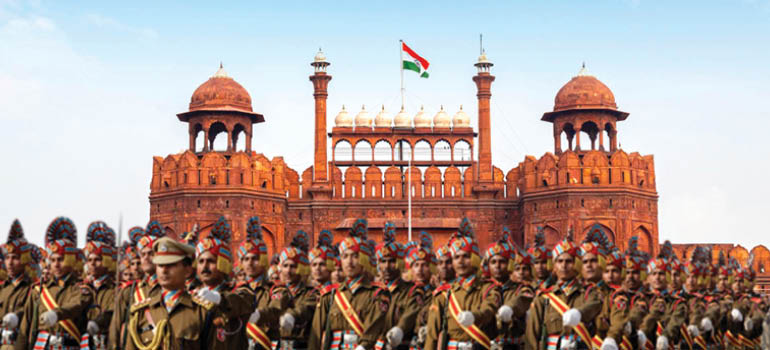Today’s world is moving towards a significant demographic shift. A WHO report states that the number of people aged 60 and older is expected to double by 2050, reaching nearly 2.1 billion. This aging population needs a comprehensive care and compassion. That is what services like Support Elders have been attempting to achieve.
Importance of understanding the needs of the elderly
If you want to provide proper care to the elders, you need to understand their specific needs. Aging comes with several challenges. These changes can be at the physical, emotional, and social levels.
Any service that wants to focus on the elder care should primarily focus on the proper understanding of these needs. Only then can one offer the relevant services. A holistic approach to cater to each of these needs would be much essential.
How can you enhance elderly support services?
There can be several ways to enhance elderly support services. Let us explore some of them here.
• Healthcare services tailored to the elders – Elders typically face a host chronic health issues and need a specialised care. The customized healthcare plans can include regular health check-ups, preventive care, and access to geriatric specialists.
• Technology based Remote health monitoring – Inclusion of constant monitoring of health in the comfort of one’s own home can help the Elderly from the problems of appointments, long hours of wait during doctor visits and commuting issues. This can also prevent health problems from deteriorating and predict timely doctor intervention to check problems from aggravating.
• Emotional and mental well-being – The emotional well-being of the elderly is often overlooked. The enhanced support services should include counseling, personal care plans, dedicated care integrators to understand individuals and handle them with sensitivity. Recreational activities and outings can help in fighting loneliness, depression and anxiety.
• Independence through home care – Offering comprehensive home care services can be yet another practical means of offering an enhanced elderly support service. Some factors that facilitate this approach can include daily activities, medication management, and skilled nursing.
• Community involvement – Most elders nowadays tend to be living alone. Enhanced elderly support should focus on community events, group activities, and support groups. This can help the elders lead a meaningful social life.
Challenges in enhanced elderly care
Well, it is quite promising and exciting to think of providing enhanced elderly care. But, this task is not without challenges. Some of the concerns can be fund related, while some others may be related to logistics and support system for the cause itself.
Funding constraints can be overcome perhaps with the help of corporates and considerate citizens. However, the workforce shortage is a huge concern in this context. The workforce involved in the elderly care needs to be compassionate and caring. Finding people with these traits has become quite difficult these days. It is also quite important to strike the proper coordination between governments, communities, and healthcare providers. Platforms like Support Elders are actively involved in making these changes possible.
Providing enhanced support for the elderly is not just a necessity. It is all about moral responsibility. Adopting a compassionate and comprehensive elderly care can definitely go a long way in providing the elders with what they really need. It is perhaps our duty to commit ourselves to building a future where the elderly does not need to be left to fend for themselves. Instead, they need to be made to enjoy their golden years with the care and respect they deserve.
Categories
Marching with pride

Our member Ms S. Chakrabarty was fortunate to be a part of the Republic Day Parade in Delhi, during mid-60s. She proudly narrates her experience of being a part of the prestigious parade of the Republic Day celebration of India.
Fuelled by my lifelong passion for sports, I shared a deep connection with Monimela, an organization dedicated to providing children with a haven to embrace their childhood and engage in co-curricular activities amid the relentless academic pressures. This ardour for sports led me to join the National Cadet Corps (NCC).
During my college years in the mid-’60s, an opportunity arose for NCC Cadets to participate in the prestigious Red Road parade in Kolkata. This was a gateway to selection for the Delhi Republic Day parade. Undeterred by the challenging practice sessions, alongside 900 cadets, I persevered. Only 12 girls and 16 boys from Kolkata emerged victorious, securing their spots for the final Republic Day parade in New Delhi. I was one of them.
We, the triumphant group, comprising overwhelmed young men and women, embarked on a journey to New Delhi for intensive practice sessions. Separate large tents for boys and girls were provided as accommodations. Temporary toilets were strategically placed at a short distance from the tents.
The arduous practice sessions commenced amidst the biting cold of Delhi in January, which continued for 7 to 8 hours each day. Beyond perfecting the parade skills, we had to take additional responsibilities such as laundering and ironing clothes, maintaining tent cleanliness, and fulfilling various assigned duties. Dinner was served in a separate designated tent meant to be the dining area. We had to maintain predetermined rules, and stand in queues while we were served food from huge utensils. The participants were from all corners of India presenting a diverse cultural tapestry.
It was mandatory for us to wake up early on the pivotal day of January 26th. It was necessary to showcase our attire and also ensure that we wore warm clothes to protect us from the harsh cold. So, we donned woollen garments beneath our dresses. On the day of the show, we were ready by 4.00 a.m. and boarded the trucks to go to the venue where we would execute our meticulously rehearsed performance. We had to parade for 2 to 3 km.
I can still recount the moment when we all collectively saluted the esteemed Prime Minister, Mr. Lal Bahadur Shastri, and President Dr Sarvepalli Radhakrishnan. The precision of our parade was an unforgettable life-enriching experience.
The Indian Beating Retreat ceremony on the evening of January 29th, marked the culmination of Republic Day festivities. The event featured captivating performances from representatives of all states, officially signifying the conclusion of the celebrations.
Though the actual participation in the Republic Day Parade may have concluded years ago, the memories are indelible.
Fuelled by my lifelong passion for sports, I shared a deep connection with Monimela, an organization dedicated to providing children with a haven to embrace their childhood and engage in co-curricular activities amid the relentless academic pressures. This ardour for sports led me to join the National Cadet Corps (NCC).
During my college years in the mid-’60s, an opportunity arose for NCC Cadets to participate in the prestigious Red Road parade in Kolkata. This was a gateway to selection for the Delhi Republic Day parade. Undeterred by the challenging practice sessions, alongside 900 cadets, I persevered. Only 12 girls and 16 boys from Kolkata emerged victorious, securing their spots for the final Republic Day parade in New Delhi. I was one of them.
We, the triumphant group, comprising overwhelmed young men and women, embarked on a journey to New Delhi for intensive practice sessions. Separate large tents for boys and girls were provided as accommodations. Temporary toilets were strategically placed at a short distance from the tents.
The arduous practice sessions commenced amidst the biting cold of Delhi in January, which continued for 7 to 8 hours each day. Beyond perfecting the parade skills, we had to take additional responsibilities such as laundering and ironing clothes, maintaining tent cleanliness, and fulfilling various assigned duties. Dinner was served in a separate designated tent meant to be the dining area. We had to maintain predetermined rules, and stand in queues while we were served food from huge utensils. The participants were from all corners of India presenting a diverse cultural tapestry.
It was mandatory for us to wake up early on the pivotal day of January 26th. It was necessary to showcase our attire and also ensure that we wore warm clothes to protect us from the harsh cold. So, we donned woollen garments beneath our dresses. On the day of the show, we were ready by 4.00 a.m. and boarded the trucks to go to the venue where we would execute our meticulously rehearsed performance. We had to parade for 2 to 3 km.
I can still recount the moment when we all collectively saluted the esteemed Prime Minister, Mr. Lal Bahadur Shastri, and President Dr Sarvepalli Radhakrishnan. The precision of our parade was an unforgettable life-enriching experience.
The Indian Beating Retreat ceremony on the evening of January 29th, marked the culmination of Republic Day festivities. The event featured captivating performances from representatives of all states, officially signifying the conclusion of the celebrations.
Though the actual participation in the Republic Day Parade may have concluded years ago, the memories are indelible.
